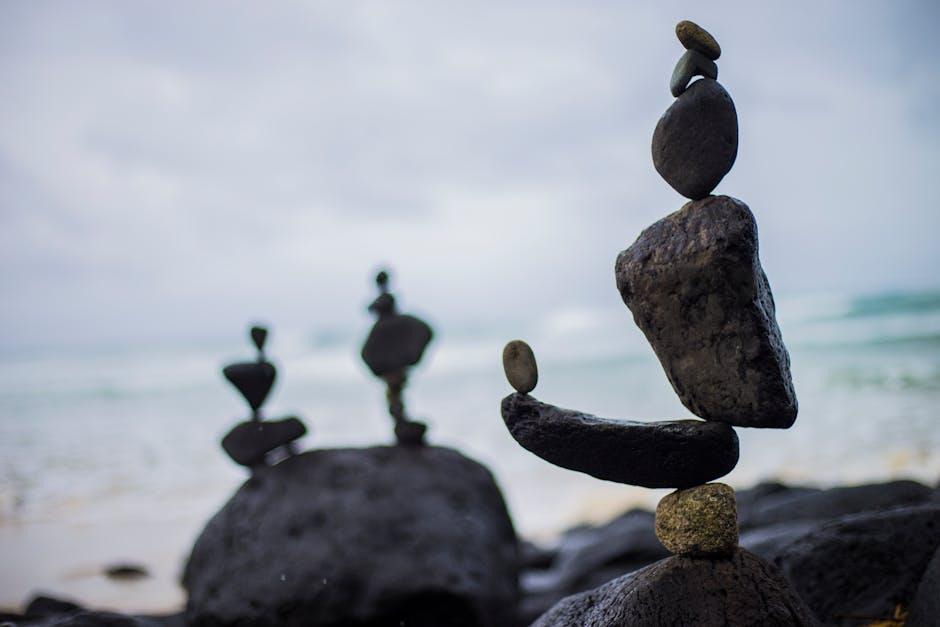In the bustling tapestry of modern life, where the cacophony of daily stressors often drowns out the whispers of inner peace, finding emotional stability can seem like a distant dream. Yet, hidden within the folds of ancient practices lies a serene path that promises to harmonize the mind and soul—meditation. This timeless art, revered across cultures and centuries, offers a sanctuary from the chaos, inviting us to explore the depths of our own consciousness. In this article, we delve into the myriad ways meditation can serve as a gentle guide, leading us toward a more balanced emotional landscape. Whether you’re a seasoned practitioner or a curious novice, join us as we uncover how this simple yet profound practice can transform the turbulence of emotions into a tranquil sea of stability.
Harnessing Inner Peace to Cultivate Emotional Resilience
Emotional resilience is a powerful tool that enables individuals to navigate life’s challenges with a sense of calm and clarity. Through the practice of meditation, one can foster this resilience by cultivating a deeper connection with their inner self. Meditation allows for a heightened awareness of thoughts and emotions, providing a space to observe them without judgment. This practice encourages a shift from reactive responses to thoughtful, intentional actions, promoting emotional stability.
Incorporating meditation into daily life can lead to numerous benefits:
- Enhanced Self-Awareness: Regular meditation helps in recognizing emotional triggers and understanding their origins, which is crucial for managing reactions effectively.
- Improved Focus: By training the mind to concentrate, meditation aids in reducing the impact of stressors and distractions, leading to a more balanced emotional state.
- Increased Compassion: Developing a compassionate mindset towards oneself and others nurtures emotional resilience by fostering empathy and reducing conflict.
Through these practices, meditation not only enhances emotional stability but also transforms how we interact with the world around us, creating a more harmonious existence.

Mindful Breathing Techniques for Enhanced Emotional Control
Mastering the art of mindful breathing can be a powerful tool in the journey toward emotional stability. By focusing on the rhythm of your breath, you create a sanctuary of calmness within, offering a pause amidst life’s chaos. This practice enhances self-awareness, allowing you to identify and regulate emotions before they spiral out of control. Consider the following techniques to cultivate this awareness:
- 4-7-8 Breathing: Inhale deeply for four counts, hold your breath for seven, and exhale slowly for eight. This method soothes the nervous system, reducing anxiety and promoting tranquility.
- Box Breathing: Visualize a square and breathe in for four counts, hold for four, exhale for four, and pause for another four. This technique aids in grounding your thoughts, creating a balanced emotional state.
- Alternate Nostril Breathing: Close one nostril and inhale through the other, then switch. This ancient practice harmonizes the mind and body, fostering a sense of equilibrium.
Integrating these mindful practices into your daily routine not only enhances emotional control but also nurtures a resilient mind, capable of weathering the storms of life with grace.
Transforming Stress into Calm through Daily Meditation Practices
Incorporating meditation into your daily routine can significantly enhance emotional stability by fostering a sense of calm and centeredness. When practiced consistently, meditation acts as a gentle yet powerful tool to navigate the complexities of emotional turbulence. The practice encourages mindfulness, allowing individuals to observe their thoughts and feelings without judgment. This non-reactive awareness cultivates a deeper understanding of one’s emotional landscape, reducing the likelihood of being swept away by stress or anxiety.
Benefits of Daily Meditation:
- Enhanced Self-Awareness: Meditation provides the space to explore inner thoughts and emotions, leading to better self-understanding.
- Reduced Anxiety: Regular practice helps in lowering stress hormones, creating a more relaxed state of mind.
- Improved Focus: By training the mind to concentrate on the present, meditation boosts attention span and clarity.
- Emotional Resilience: Over time, meditation builds a robust emotional foundation, enabling individuals to face challenges with grace and poise.

Building Emotional Awareness with Guided Visualization Exercises
Guided visualization exercises are a powerful tool in meditation that enhance emotional awareness by tapping into the mind’s ability to create vivid imagery. These exercises involve creating mental images that can evoke emotions and help individuals explore their feelings in a safe and controlled environment. By engaging in visualization, individuals can begin to understand and process their emotions, leading to greater emotional stability.
- Enhancing Self-Reflection: Visualization provides a space to reflect on emotional experiences without judgment, allowing individuals to observe their emotions from a distance.
- Reducing Stress: By picturing calming scenes or experiences, one can reduce stress and promote a sense of peace and relaxation.
- Improving Emotional Regulation: Regular practice helps in identifying emotional triggers and developing strategies to manage reactions effectively.
Through these exercises, individuals cultivate a deeper connection with their emotional landscape, fostering a balanced and resilient emotional state.
Wrapping Up
In the intricate tapestry of human experience, emotional stability serves as a cornerstone, anchoring us amidst the ebb and flow of life’s uncertainties. As we draw this exploration to a close, it becomes clear that meditation is not merely a practice, but a journey—a journey that invites us to delve deeper into the recesses of our minds, to cultivate a serene landscape within. Through its myriad forms, meditation offers a sanctuary where clarity emerges from chaos, resilience is forged in the fires of self-awareness, and the heart learns to dance gracefully with the unpredictable rhythm of emotions.
By integrating meditation into the fabric of our daily lives, we are not only enhancing our emotional stability but also embarking on a path of profound self-discovery. It is a path that beckons with the promise of balance and tranquility, guiding us toward a more harmonious existence. So, whether you are a seasoned meditator or a curious novice, remember that each moment of stillness is a step toward a more centered self. In the silence, may you find strength, and in the practice, may you find peace.
